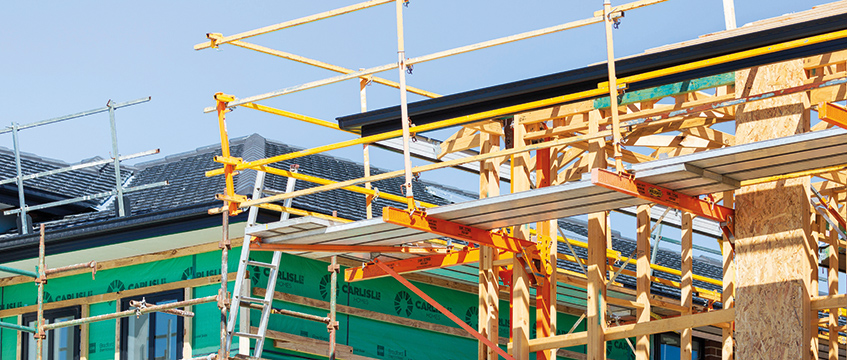COMMENT Growing budget hotel brands in London – where I have spent most of my career – and other in-demand locations across the UK is not an easy task. We fight hard to compete with other uses for land and must squeeze every inch of space from a development to our advantage.
The average rate for a Premier Inn room was a little over £60 pre-pandemic, and there is only so much we can afford to pay to bring our affordable hotel brands to the top locations our customers expect of us. But we don’t do it alone, and though it feels flimsy to include buzzwords like ‘flexibility’ and ‘collaboration’, they have been central to the growth of Premier Inn and Hub by Premier Inn over the past decade.
Flexibility and collaboration have never been more important – in enabling our brands to grow, playing our part in tackling the climate crisis, and managing the impact of inflation.
Whitbread is a business with firm commitments to all three as we continue to expand into a structurally changing hospitality market and deliver our corporate target of becoming a net zero carbon business by 2040 (for scope 1 and 2 emissions).
Key milestone
Looking around our trading estate, it’s clear to see how flexible we have had to be to deliver new locations for our customers. Although we have been able to deliver many new-build hotels over the past decade, we have also been very successful at retrofitting Premier Inn and Hub by Premier Inn hotels into existing buildings.
I would also argue that branded hotels like Premier Inn and Hub are well placed to continue to do so. Our brands do not need a prominent frontage to be successful, we can trade successfully from ‘off-pitch’ locations, and our ability to accommodate lower floor-to-ceiling heights compared with other uses helps to make office-to-hotel conversions viable.
A key milestone on this journey was in 2014 with our first Hub by Premier Inn in St Martins Lane, Covent Garden – itself a former office building that achieved a BREEAM ‘Outstanding’ energy rating, the first hotel to do so. We have continued to build on this experience across the UK, opening Premier Inn and Hub sites in former offices, department stores, retail units, heritage warehouses, and even a Victorian hospital.
And as an operator of hotels as well as a developer of them, we have also built a deep understanding of important operational issues such as acoustics, servicing and energy performance, as well as the reaction of our guests to staying in artificially lit or ‘daylight-less’ rooms at these restored buildings (great by the way).
But despite these successes, and the obvious benefit to the environment in embodied carbon that they present, restoration isn’t right everywhere. It is not possible to convert many existing buildings into efficient hotels. Nitty-gritty property issues such as split levels, the layout of columns, the strength of foundations and the cost of converting an existing building into a budget hotel can preclude it from happening.
Lasting contribution
Our starting point at Whitbread is always to approach each new development opportunity with the circular economy in mind.
But we also need to ensure that all our hotels are efficient to operate and return for our shareholders. A purpose-built new development that is designed to be operationally energy and water efficient and can be easily converted into another use in time does have a place.
And that is where the need for collaboration comes in. It is my experience that the retrofit agenda is bringing everyone involved in delivering new development closer together at a much earlier stage. More upfront work is required – at risk – to undertake circular economy assessments and understand what parts of a building can be retained and reused (if any).
We will always be happy to collaborate and share our expertise to make developments happen. We are also fortunate that Whitbread’s broad shoulders can accommodate the additional upfront costs and provide the firm early commitment that funders need.
But there is a limit to what can be achieved, and we must not lose sight of the end benefits of delivering new development when considering whether to restore or redevelop. Which, in our case, is the long-lasting contribution our guests and teams make to creating proper places and communities.
Derek Griffin is head of acquisitions at Whitbread











